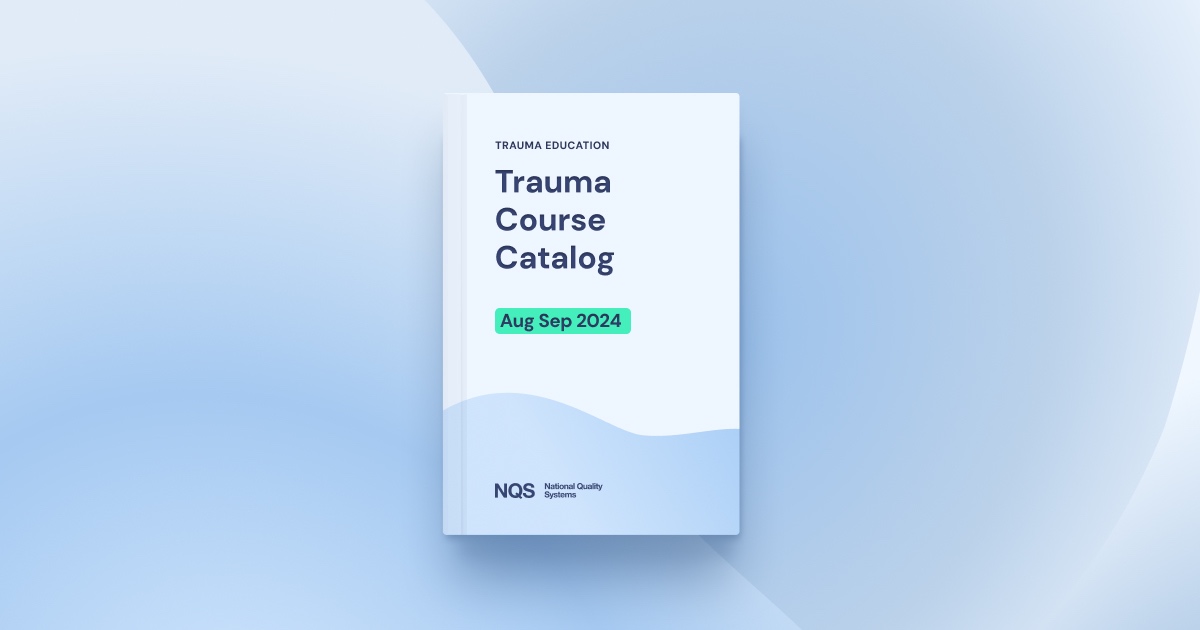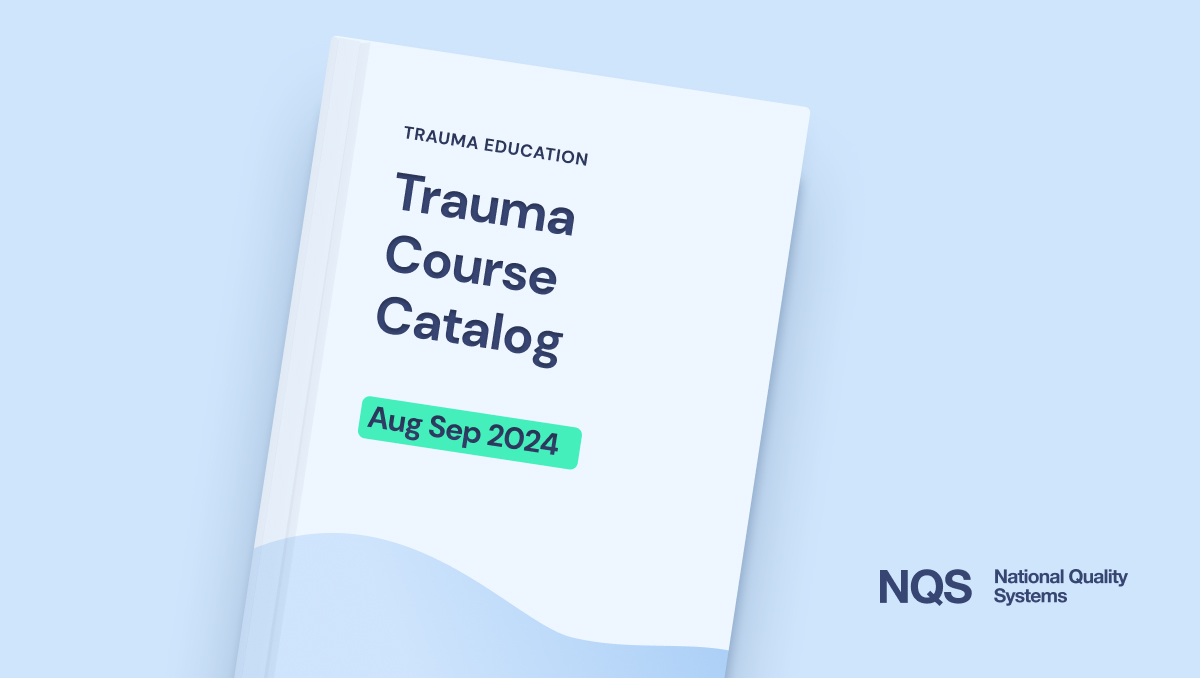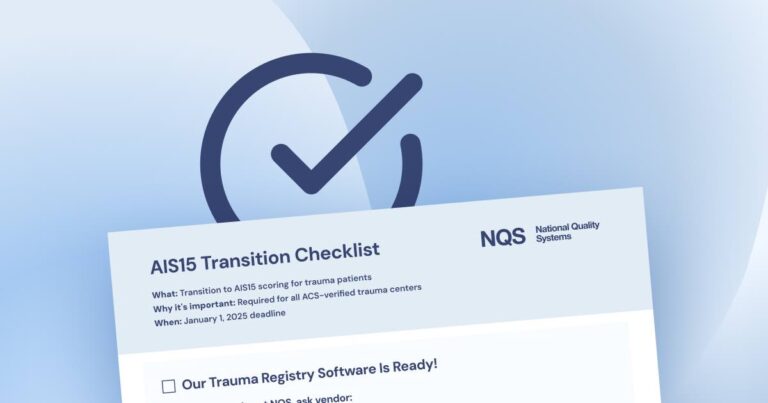

At NQS, one of our primary goals is to provide trauma teams across the country with the best resources available to help eliminate preventable death and disability from injury. We believe that continuous education is an essential component of achieving this goal.
In today’s labor market, trauma teams face high turnover rates, which increases the need for workforce training. This need is further compounded by limited budgets for education and travel.
Introducing the Trauma Course Catalog
To address these challenges, we have created the Trauma Course Catalog—a comprehensive list of courses taught by leading trauma organizations. Our aim is to simplify the process of finding and registering for these courses, enabling trauma teams to stay updated with the latest advancements and best practices in the field.
This initial catalog will consist of classes happening in August and September 2024 but we will release more periodically.
Explore the Trauma Course Catalog to discover a wide range of courses, learn about the organizations offering them, and see how they can positively impact the trauma industry as a whole. You can get the full pdf at the bottom of the page.
Why Continuing Education Matters: Better Skills, Better Outcomes
Enhancing Skills and Knowledge: Continued education ensures trauma care professionals stay updated with the latest medical advancements, regulatory changes, and best practices.
Courses like ICD-10 Trauma Injury Coding by ATS ensure professionals can accurately code and document trauma injuries, a critical aspect of patient care and hospital reimbursement.
Improving Patient Outcomes: By providing access to the latest training, the Trauma Course Catalog empowers trauma teams to improve clinical skills and patient care practices. This leads to better patient outcomes, reducing preventable deaths and disabilities, and ultimately saving more lives.
Courses like TOPIC and OPTIMAL by STN focus on performance improvement and trauma center management, which directly impact patient outcomes. Applying the latest methodologies and tools learned in these courses can significantly enhance the quality of trauma care.
Career Advancement: Hospitals and trauma centers that prioritize education and training attract top talent. Professionals are drawn to organizations that invest in their growth, leading to improved recruitment and retention rates and building teams that deliver excellence. Certifications from recognized courses can enhance a professional’s credentials, opening doors for career advancement.
Completing the Trauma Medical Director Course by TCAA, for instance, can help Trauma Medical Directors “improve operations in their trauma center and exert control over trauma surgical practices.”
Advancing the Entire Trauma Industry: When trauma team members invest in continuing education they are not only improving their personal potential but advancing the entire trauma industry. Individuals who are equipped with the latest advancements in trauma care can become a thought leader for their organization and advocate for program innovations that can improve the entire program.

Unite for Impact: Together, We Save Lives
Join NQS in our goal to empower trauma teams, improve patient outcomes, and make a meaningful impact in the fight against injury-related mortality and disability. Together, we can achieve excellence in trauma care and save lives. Attending classes taught by professional trauma organizations can significantly enhance the skills of trauma center teams, foster career growth, and ultimately help eliminate preventable death and disability from injury.
For more information on finding and registering for trauma care courses, download our Trauma Course Catalog today!




